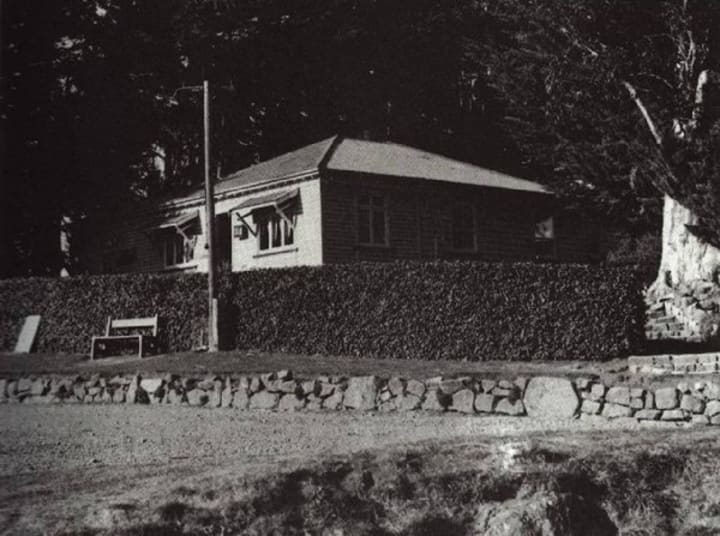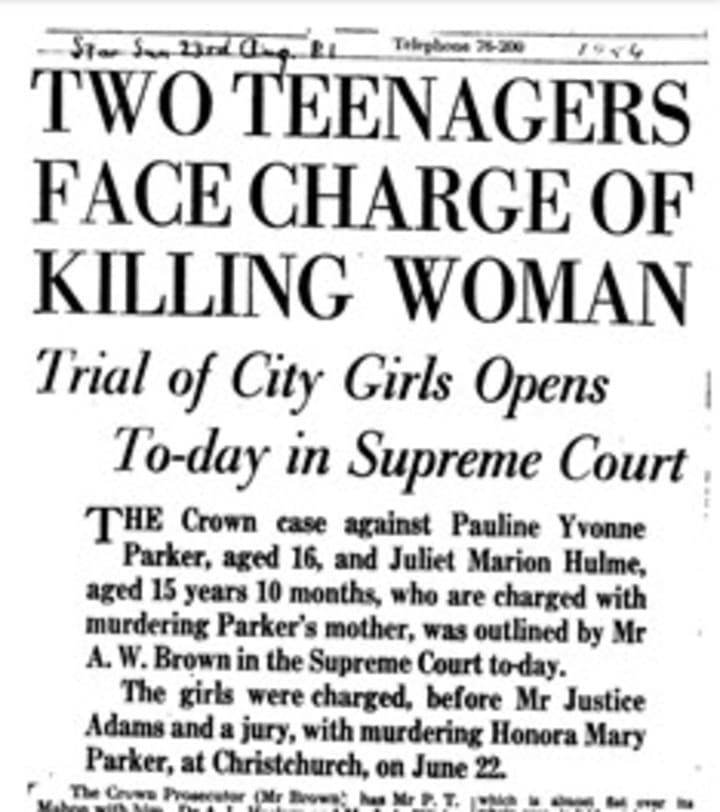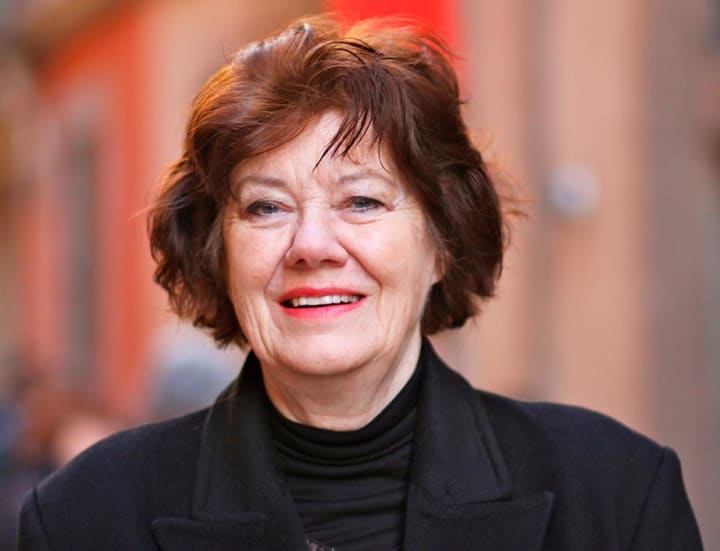The Crime of the Century in Christchurch, New Zealand
How an Inseparable Friendship Led to Murder

When a gruesome murder took place in the quiet, conservative town of Christchurch, New Zealand in the summer of 1954, it sent shockwaves through the nation, garnering international headlines. The victim, 45-year-old Honora Parker, was bludgeoned to death in broad daylight with a brick in a nylon. The assailants? Her 16-year-old daughter Pauline Parker, and Pauline’s closest friend, 15-year-old Juliet Hulme.
I initially heard of this heinous crime through director Peter Jackson’s critically acclaimed film Heavenly Creatures, which was based on the shocking case. Through his own sympathetic lens, Jackson brought to light the intricate details of a friendship that got dangerously out of hand and created the most devastating outcome.
The film, which was released in 1994, stars the incomparable Melanie Lynskey and Kate Winslet, in the lead roles of Pauline Parker and Juliet Hulme, respectively. Their captivating, nuanced performances, mixed with an undeniable on-screen chemistry, managed to create layers of empathy for characters who were seen by all accounts as considerable monsters -- a difficult task for any actor, let alone ones taking on their first feature film.

The movie, and Lynskey’s performance, specifically, left me spellbound for years. I had intended to watch it once more before writing this piece, but I can’t seem to find it anywhere. It is not streaming on any platform, and after reaching out to my local library to request it, I received the following email:
Unfortunately, the title you requested is out of print and unavailable through our contracted vendors. Therefore, at this time, we are unable to fulfill your recommendation.
So down the rabbit hole I went, revisiting the case and looking at press clippings and articles surrounding the bone-chilling murder and its aftermath. Here are the details...
The events leading up to Honora Parker’s murder
Pauline Parker and Juliet Hulme met in 1952 at Christchurch Girls’ High School upon Juliet’s arrival in Christchurch from England. Her family moved to New Zealand due to her father accepting a position as the head of Canterbury University College.
What began as a bond over their ill fates – Pauline had been diagnosed with Osteomyelitis as a child, which was a disease of the bones, and Juliet with Tuberculosis, a disease of the lungs – grew into a friendship that quickly became intimate.
The girls spent practically all their spare time together. They wrote plays and stories centered around a fantasy world they had created – one that rejected Christianity and instead believed in a religion in which they worshiped celebrities of the time by making them saints, like opera singer Mario Lanza. In their fantasy, they created a parallel dimension called The Fourth World - a beatific paradise in their minds’ eye that only ten beings could enter, including themselves.
From Pauline’s diary:
“We have an extra part of our brain which can appreciate the 4th World but, meanwhile, on two days a year, we may use the key to look into that beautiful world…"
The closer Pauline and Juliet grew, the more suspicious their parents became of their friendship and began to take issue with it. So much so that Pauline’s parents took her to a psychiatrist, who believed their relationship was of a homosexual nature, though he felt the girls would grow out of it. Homosexuality at that time was considered a mental illness and furthermore, a criminal act. It seems Pauline's mother did not hide her dissatisfaction with their friendship.
When Juliet had a flare up of Tuberculosis in 1953, she was sent away for a few months to a sanatorium. The girls had to be apart, though Pauline wrote to Juliet daily and awaited her return. When Juliet was finally released, they became inseparable once more.
Around this time, the girls upsettingly discovered Juliet’s mother in bed with another man. Juliet’s parents agreed to separate, and her father was asked to resign from his position at the university. He decided to move back to England. As Juliet’s lungs could not withstand a cold winter in Europe, her parents felt it best that she travel with her father as far as South Africa, where she could stay with relatives in warmer weather, and he would continue on to England.
The news of Juliet leaving panicked the girls. They had grown so close and had dreams of moving to Hollywood to publish the novels they had written together, and to work in film. Pauline desperately wanted to join Juliet in her travels but her mother was strictly against it. It seems both sets of parents rejected the idea, but for some reason it was Pauline’s mother, Honora, that the girls became fixated with.
From Pauline’s diary:
April 28, 1954: "Anger against mother boiled up inside. Suddenly, a means of ridding myself of this obstacle occurred to me. If she were to die…"
The following day she wrote that Juliet was "worried but does not disagree violently."
A few weeks before Juliet was set to leave the country, Honora agreed to let Pauline stay with the Hulmes in Ilam for two weeks, seeing an end in sight to the friendship. It was during this period of time that the plan to rid themselves of Honora solidified.
From Pauline's Diary:
June 19, 1954: "…our main idea for the day was to moider Mother. …it's a definite plan we intend to carry out. We have worked it out carefully and are thrilled by the idea. Naturally, we feel a trifle nervous but the pleasure of anticipation is great.”
June 21, 1954: "Deborah* rang and we decided to use a rock in a stocking rather than a sandbag. We discussed the moider. I feel keyed up, as if I were planning a surprise party."
*Incidentally, Pauline and Juliet went by the names of Gina and Deborah in the fantasy stories they created.
June 22, 1954: "The day of the happy event. I am writing a bit of this on the morning of the death. I felt very excited and the-night-before-Christmassy last night. I didn't have pleasant dreams, though.”
Honora Parker’s murder
On June 22, 1954, Juliet came over to Pauline’s home late morning with a brick she had picked up from her residence. The girls spent some time in Pauline's bedroom, ensuring the brick was tied in a nylon stocking and placed in Pauline’s bag. They then proceeded to have lunch with Pauline’s parents and older sister Wendy. It was later noted that the girls seemed at ease and happy, participating in conversation and sharing laughs with everyone.
Following lunch, Honora, Pauline and Juliet boarded a bus to Victoria Park in the Cashmere Hills for an afternoon tea at the park’s kiosk and a walk in the woods to follow.

Honora ordered a tea for herself and two sodas for the girls. The kiosk’s manager, Agnes Ritchie, recalled chatting with Honora and thought the girls seemed very normal -- if anything, on the quiet side. Honora and the girls went off on a walk in the park around 3:00 pm.
At 3:20 pm, they came to an area on the trail that was a bit more secluded, near a small wooden bridge. It was there that they executed their plan.
Juliet, walking ahead on their path inconspicuously dropped a stone from a broach she had slipped in her purse earlier, and called Honora and Pauline to come look at it. As Honora bent down in the stone's direction, Pauline dealt the first blow to her head with the brick. In a horrific attack that ensued much longer than they had likely anticipated, the girls stopped at nothing to make certain of Honora's death, including holding her down while they continued to strike her.

Blood-soaked, and hysterical, they both ran out of the park, back to the kiosk, where Agnes recalled them screaming at the bottom of the steps “help us, mummy’s been hurt!” Mr. Ritchie, Agnes's husband, went down the path to check on Honora while she tried to calm the girls, asking what had happened.
Pauline explained that her mother had taken a bad fall and her head hit a brick, and when they tried to help her up, her head kept landing on the brick. Juliet didn't want to talk about any of it. She seemed agitated and wanted to leave immediately.
An ambulance and detectives arrived at the scene. Both Juliet's parents and Pauline's father were contacted and soon the girls were driven to Juliet's home.
Later that evening, Mrs. Hulme helped them bathe and wash the blood off their skin. Two detectives on the case showed up – Detective Tate and Detective Brown – and proceeded to take statements from the girls separately. Initially Juliet had said she was not involved in the attack, but had witnessed it. When this was told to Pauline, the following questioning took place:
Detective Brown: Who assaulted your mother?
Pauline Parker: I did.
DB: Why?
PP: If you don’t mind I won’t answer that question.
DB: When did you make up your mind to kill your mother?
PP: A few days ago.
DB: Did you tell anyone you were going to do it?
PP: No. My friend does not know anything about it. She was out of sight at the time. She had gone on ahead.
DB: What did your mother say?
PP: I would rather not answer that.
DB: How many times did you hit your mother?
PP: A good many times, I imagine.
DB: What did you use?
PP: A half-brick in a stocking. I took them with me for the purpose. I had the brick in my shoulder-bag. I wish to state that Juliet did not know of my intentions and she did not see me strike my mother. I took the chance to strike my mother while Juliet was away; I still do not wish to say why I killed my mother.
DB: Did you tell Juliet that you killed your mother?
PP: She knew nothing about it. As far as I know she believed what I told her, although she may have guessed what had happened, but I doubt it as we were both so shaken that it probably did not occur to her.
Perhaps the only time Pauline ever expressed some form of remorse for the killing of her mother was when she concluded the session by saying “as soon as I started to strike my mother I regretted it but could not stop then.”
Unbelievably, there was another entry that same day by Pauline, though not directly in her journal. On a separate piece of paper, which was confiscated by detectives, she had written:
June 22: “I have successfully committed moider. Found myself in an unexpected place. All the Hulmes have been wonderfully kind and sympathetic. Anyone would think I’d been good. I’ve had a pleasant time with the police talking nineteen to the dozen and behaving as though I hadn’t a care in the world. I haven’t had a chance to talk to Deborah properly but I am taking the blame for everything.”
The Trial
Upon further interrogation and a review of Pauline's diary, there was no question that the girls were both involved in the killing of Honora Parker. They were arrested and charged accordingly.


Though Pauline and Juliet committed the crime, their defense team pleaded "not guilty" by virtue of insanity to try and prove that the girls did not know right from wrong.
As the trial unfolded, the insanity angle did not stick. Pauline and Juliet were not believed to be insane, but rather normal, if not overly dramatic, teenagers who were intelligent, imaginative, quick-witted, and obsessed with one another. No one was going to come between them. They very much knew right from wrong -- all the more reason this case is so unnerving.
One of three psychiatrists on the stand, Dr. Kenneth Robert Stallworthy, who was a senior medical advisor at the Avondale Mental Hospital in Auckland, said the following during the six-day trial:
“There were many other things which they told me which made me quite satisfied they knew they were doing wrong at the time of the act. In the diaries there was evidence of motive, planning, and premeditation. At the last interview with Parker at Paparua she said ‘We knew we were doing wrong. We knew we would be punished if we were caught, and we did our best not to be caught.’”
Stallworthy continued by mentioning his interview with Juliet as well, stating “Hulme said to me: ‘I knew it was wrong to murder, and I knew at the time I was murdering somebody. You’d have to be an absolute moron not to know murder was against the law.’”
Pauline’s diary not only helped shed light on the girls’ intense relationship, but it clearly documented the premeditation in this case.
It was up to the jury to decide if the girls were in fact insane or, as the prosecution stated, this ‘plainly was a cold, callously committed and premeditated murder, committed by two highly intelligent and perfectly sane girls … They are not incurably insane. My submission is they are incurably bad.’
After only 2 hours and 15 minutes of deliberations, the jury came back with a unanimous vote of “guilty.”

The sentencing
As both convicted parties were minors, the death penalty was off the table and the sentencing by Justice F. B. Adams was as follows:
"You both being under the age of 18, the sentence of the Court is detention during her Majesty’s pleasure. That sentence is passed upon both of you.”
It was soon after agreed upon that the girls be sent to separate prisons to serve out their sentences and that they only be released upon the condition that they never see each other again. After only five and a half years they were liberated and given the opportunity to start a new life with new identities, on separate paths.
Where are they now?
Following the release of Heavenly Creatures, 40 years after the murder took place, journalist Lin Ferguson was inspired to track down Juliet. In her search, she discovered that Juliet was a successful crime novelist living in the UK, under the new identity of Anne Perry.

In 1996, two years after Anne was discovered, reporter Chris Cooke located Pauline Parker, now Hilary Nathan, residing in the UK as well, in a small village outside of Kent. Hilary was shocked that anyone had found her and did not want to speak about her past. Her older sister, Wendy, shared that after her release, Hilary had become deeply religious and began to teach children how to ride horses, which was a passion of hers. She added that Hilary led a very unusual existence, a solitary life in which she had no contact with the outside world.

In 2007, Anne Perry was interviewed by a fellow Scottish crime writer, Ian Rankin, who directly asked her about the murder she committed. This is what she had to say:
As of 2019
Hilary (81) moved to Scotland, in the remote Orkney Islands. Anne (80) has continued to write crime novels and is apparently spending time in Los Angeles working on turning her books into films. There is nothing to suggest that the women have had any contact with one another.
Resources:
https://nzhistory.govt.nz/people/pauline-parker
https://teara.govt.nz/en/1966/trials-notable/page-17
https://en.wikipedia.org/wiki/Henry_Rainsford_Hulme
https://christchurchcitylibraries.com/Heritage/Digitised/ParkerHulme/
https://www.nowtolove.co.nz/news/real-life/pauline-parker-juliet-hulme-murder-case-christchurch-where-now-anne-perry-hilary-nathan-41688
https://truecrimenz.com/2019/06/22/case-1-parker-hulme-murder-part-2/
About the Creator
Dana Maxwell
She/Her. Coffee and cat lover. Film and television enthusiast. Random thought thinker. If only every decade could be as cool as the 90s.
T: @danamaxwell30
IG: @danamaxwellsmart







Comments
There are no comments for this story
Be the first to respond and start the conversation.